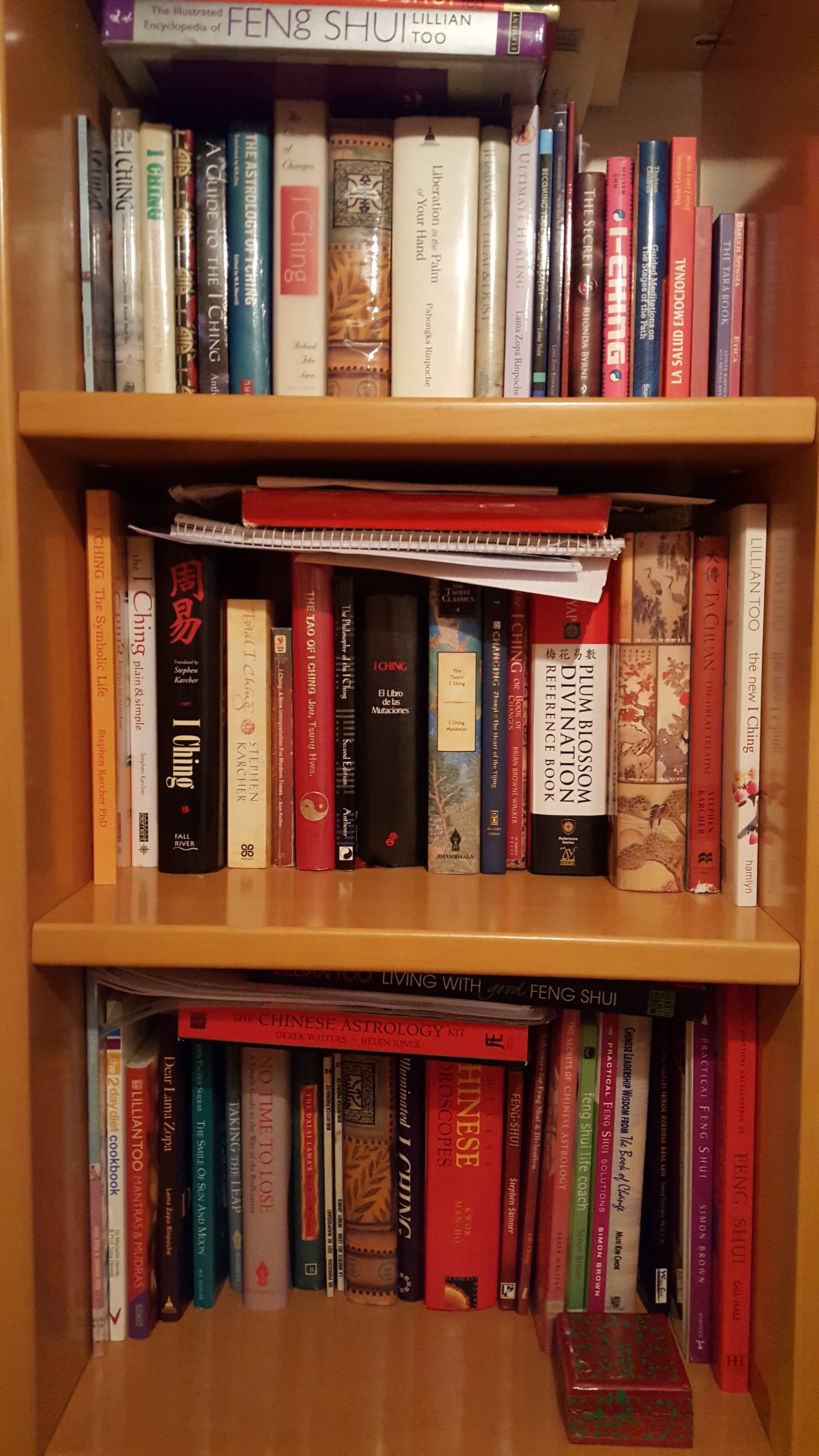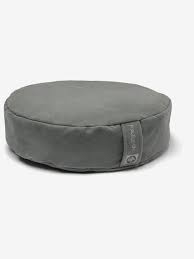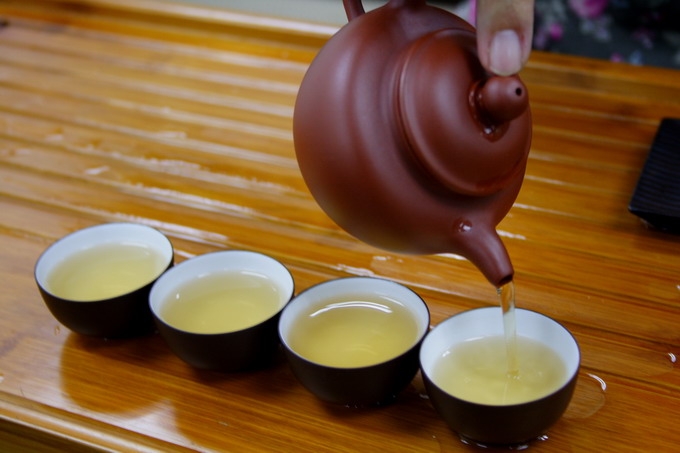Welcome home! Please contact lincoln@icrontic.com if you have any difficulty logging in or using the site. New registrations must be manually approved which may take several days. Can't log in? Try clearing your browser's cookies.
The I Ching
Does anyone here use the I Ching to aid their practice?
0

Comments
No, but I’m very interested in it. I think you mentioned it in a previous thread, about wu wei. Are there any English translations you recommend? I read the Tao-te-Ching recently and thought that was very interesting, if somewhat baffling. How did you come to be interested in this stuff?
Yes, I highly recommend Carol K. Anthony's book 'A Guide to the I Ching'. It is a commentary on the I Ching very much suited to the western mind. It has been very, very helpful to me. Mainly in regards to taking action in the world. For a while I had been puzzled about how to make the highest choices out of all the available options in life. The I Ching is guiding me well. My interest in this came about through picking up another I Ching commentary in the library.
How do you see that working then? Could you give a concrete example of how it has helped you? My knowledge of the I Ching is not particularly deep but it’s not a Buddhist tool, and divination in general is not usually useful in meditation practice or exploration of the dharma.
About the only area where I could see it might have uses is in insight into oneself, where it might spark new thoughts by providing an alternate way of looking at things.
I used to use the I Ching a lot, in conjunction with the BaGua and Feng Shui... all Chinese practices are intertwined. They also figure in TCM, which I also studied as part of my Shiatsu therapy course. There is a separation here; there isn't a perceived connection between astrology, for example, and health care. But in China, everything is interconnected and intertwined; environment, health and personal fortune....I never cease to be fascinated by it all. It's a perpetual learning process....
This is exactly what it is for and what it does. It provides an insight into your current state of mind. For example today I 'did an I Ching', and this is the summary of what I received...
'Wondering why things are the way they are, or what to do about them, is in conflict with the creative, for in trying to find comprehensive answers, or in seeking the security of knowing, we distrust that the creative will show the right way, and will unravel the ambiguity of the situation at just the right time'.
Like the dharma, the wisdom of the I Ching is about correcting our perception / thinking to be in alignment with the truth.
Yin Yang, Trigrams... all of it is happy coincidence with an alarming amount of appropriate truth to it....
From what I've read about the I Ching, when we cast hexagrams ('do an I Ching'), we are consulting something with an intelligence and an awareness about our current situation / predicament. That it can correct our thinking suggests to me that the I Ching is a means of communicating with a higher part of our nature - perhaps our Buddha nature - that can then guide our lower, ego driven nature back towards enlightened thinking and being through the I Ching.
In the I Ching it counsels us at first to remain open minded because skepticism etc. will lead to a muddled result, whereas an attitude of openness allows the I Ching to bring more pertinent guidance. This is something I've definitely discovered to be true. Having had a sincere openness that resulted in accurate messages, I now have immense confidence that the message I receive will be on point, which in turn means I get very on point messages... 'happy coincidences'. It's a beautiful tool that I sometimes abuse - not sexually, or anything, but through over use, especially when confused or in hard times.
I have found the same to be true, of Tarot cards, although I personally don't use them...
I am reminded of a friend of mine of long ago; a Born-again baptist Christian, who wanted to be led by Christ at every turn, and was convinced he spoke to her through the scriptures by solving her problems literally. So she would consider a dilemma or question, and then let her NT Bible fall open on its own, and read the first verse her eyes alighted on, taking that as Christ's direct message to her.
I think she went off the idea when, asking for advice on how to help her friend who was
threatening suicide, the first words her eyes fell upon were, "Go ye and do likewise"...
Ha! That's funny! It sounds like me and Jesus are on the same page, aye! (Wink, smile, tongue out, whatever).
I have used the I Ching a lot, more for guidance than for divination.
One can do it for many reasons, but it does not aid in anything to our Buddhist practice.
Since I set out on my spiritual path through Taoism, I do look up to the I Ching with much reverence.
If one wants to accurately tune in to the I Ching's guidance, one should calculate the hexagram with a Chinese Ten Thousand Year calendar, not with coins nor sticks.
Carol K. Anthony's is by far NOT the best version available.
She puts too much personal input into her version.
It is not an accurate translation, though its wisdom may be useful as self-help guide.
The most accurate translations are:
1) Richard Wilhelm's,
2) Stephen Karcher: he has several editions, from more accurate to more mystical. His best are the translation with concordance, "Total I Ching," "I Ching: the symbolic life," and "The I Ching plain and simple."
3) Brian Browne Walker's,
4) Da Liu's "I Ching numerology,"
5) Dr Wang Yang's,
6) Thomas Cleary's Taoist and Buddhist I Ching
7) LiSe's: a Dutch woman whose version may be downloaded and is probably one of the best so far
I am too tired to type.

Here's a picture of part of my bookcase with most of the I Ching versions I have.
Some of them are elsewhere, but I hope the picture can be zoomed in to have a better look.
Wilhelm's book is wrapped.
That’s a lot of books, @DhammaDragon ... if you’ve read all of that then your reading on the I Ching exceeds all of mine on Buddhism you seem to have a wide scholarly streak
you seem to have a wide scholarly streak
She do love her books! And she do read them all!
The best solution is to ask the I-Ching if it is any use ...
I used an on line reading. After some mysterious twaddle that could mean anything, the 'changing line' or specific advice was:
You place your trust in an unworthy ally.
Indeed ...
Much like the pattern seekers using random Bible advice @federica mentions (also done with Koran) I feel no need to delve into https://en.m.wikipedia.org/wiki/Methods_of_divination
The only thing I indulge in is ....


Along with plenty of this...
After thought....If one thinks about it.... the Dhammapada is a book of change
Actually, I do have several more lying around, @Kerome.
There was a time in my life when I consulted the I Ching every day.
I was very much into BaZi, Chinese Astrology and Feng Shui.
Now you see the secret of my charm: I am an interesting lady to talk with
I found other copies I have somewhere, but I do have more in other parts of the house.
In this picture, there are two of my favourites: James Legge's "Yi King" (an 1882 edition) and Jack Balkin's "The Laws of Change."
I would consult several versions, and make notes into my Legge version, which is the one I preferred to consult.
Other than that, now, like @Shoshin, I am more into my medi and my tea...
In a nutshell, I do like Carol K. Anthony's book "The Philosophy of the I Ching" as an interesting introduction for people who want to have an idea of what the I Ching is about.
But her version of the I Ching, plus another hefty one she made down the years that is hardcover and deluxe edition leave a lot to be desired....
Then you must be aware of the Chinese penchant for aged tea? I was at a friends house the other day, and while in Hong Kong they had purchased a box full of 10-year old tea... it was quite delicious, we had some.
I did have some in some gorgeous teahouses in Singapore and Malaysia, @Kerome.
Can't wait to repeat the experience next February, when we travel again.
I would like to share this quote by Hellmut Wilhelm, the son of Richard Wilhelm, the most revered I Ching scholar:
Peter Harvey’s Introduction to Buddhism says:
“As an aid to planning courses of action in a karma-influenced world, many traditional Buddhists use divination methods such as astrology at certain points in their lives, so as to try to gauge what their karma has in store for them.”
I guess this would cover the I Ching. Practicing divination doesn’t have to mean abandoning responsibility for one’s own choices.
In Buddhism, you are your primary teacher.
If you are fortunate to have live access to the guidance of a skilled Buddhist, that person is your secondary teacher. Yet one of tremendous importance.
Written oracles and such ... not reliable sources of help.
In fact, too much reliance on cognition/thoughts is a Western trait, and one that tends to impede our learning when practicing Buddhism. Buddhism, ultimately, is about "being" rather than "thinking".
Ok, hands up—I am definitely guilty of this. I can’t help thinking (pun intended) that even the idea of “being” rather than “thinking” is a thought. At least it’s something I conceive of using “thinking”.
So how do I avoid this? I learn about Buddhism by reading and thinking. And if I don’t learn about it, I’ll never be able to practise it. So, what do?
Try walking meditation?
You do know the analogy of the Raft, don't you?
Implement what you know to be true, and leave aside what is excess baggage. That slows you down and impedes your progress.
A knife can be a lethal weapon, and inflict great harm to another being.
A knife can be an invaluable tool, and assist you when you need it to cut something.
You know which use to put it to, you know which use to never implement.
Thus, you learn what is practical and advances you.
Thus you learn what is surplus to requirement, and can be left aside.
Simplify.
I use a lot of tools and resources to figure out myself and this life. Buddhism is the biggest part of that, and I've found everything else fits in quite nicely, as Buddhism is just accepting that way, as a system. I do not look at Buddhism like a hard-and-fast set of rules for my life, so I don't throw out other useful resources or tools just because perhaps some use them for divination and Buddha said that's a no-no. I figure I'm not here to impress Buddha, or Buddhism, but only to work through myself. Whatever I can find that helps me to do so is welcome.
The I Ching and many other things have been part of my "spiritual evolution." I very much take a "take what you can use and dispose of the rest" view for my beliefs, and Buddhism isn't excluded from that for me. I don't use everything Buddha said to discard other teachings nor do I blindly accept his. I don't fully discard much, some things are shifted to the back burner and I do revisit them because my understanding of those things shifts with time and I find little that is utterly useless on my path if only because they help me to understand others better. All things with balance.
@karasti, that is exactly how I feel. And I think even that flexible mindset, of not taking Buddhism as “hard-and-fast”, was promoted by Buddha. I don’t believe he wanted anyone to take his teachings on faith, without putting them to the test themselves. And the same would go for other people’s teachings: “take what you can use”. He was simply confident that ultimately we’d find his teachings were sound.
I am a Buddhist but also love to keep an open mind about life.
I have had a very close relationship to the I Ching for many years and I could not really define it as a divination tool nor an oracle.
It is an old book of wisdom, an arcane tool for self-help, one's inner voice.
I have come to treat it as a good friend I may come to for solid advice in times of doubt.
Some things in life cannot be easily explained and the I Ching belongs in that category.